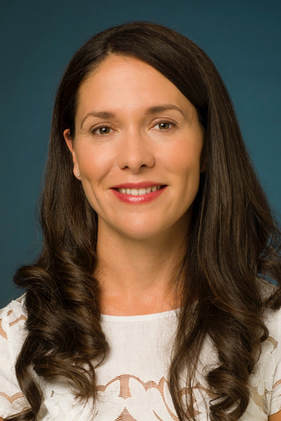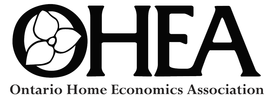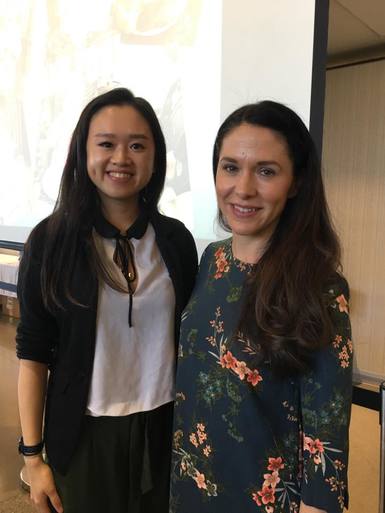|
0 Comments
By: Erin MacGregor, P.H.Ec of howtoeat.ca March 20th marked the beginning of spring, but warm weather has just begun to push through. Nevertheless, this Asian Orzo and Tofu Salad is perfect for the upcoming barbecue season!
“Family work” has been broadly defined as a type of “social reproductive labour” (1) involving routine activities that maintain the health and well-being of family members, including housework, emotion work, and child care. As such, to round out my blog posts so far on housework and emotion work and to complete the “family work triad,” the following is a study I began during my undergraduate degree that focused on mothers’ experiences with navigating child care in Alberta, Canada. Enjoy! – Rebecca Horne, P.H.Ec. …… Canada does not have a national child care policy. As a result, the child care systems in the majority of Canadian provinces are characterized by a lack of regulated, affordable, and accessible spaces (2). For example, there is a shortfall of over 154,000 child care spaces in Alberta (3), and group child care centers cost between $800-900 per month (4), the third highest across all Canadian provinces. This leaves some mothers using up to 36% of their annual incomes to pay for child care fees (5)! Given that mothers continue to be primarily responsible for the care of children (6), such limited options may prompt them to make sacrifices—or give up their own desires and interests—to mitigate child care constraints. Yet, there is limited research on these types of sacrifices and even less from the perspectives of mothers themselves. Let’s hear from the mothers themselves! To better understand mothers’ lived realities within the Canadian child care context, Dr. Rhonda Breitkreuz and I asked the question: What messages of sacrifice are embedded in Canadian mothers’ stories about their experiences with navigating childcare? (7) Dr. Breitkreuz and her research team conducted thirteen focus groups in five locations across Alberta, Canada with 95 mothers who were using or looking for child care for their young children. They asked questions in the focus groups about how mothers integrated paid work and child care, the kinds of care arrangements they made, and the facilitators and barriers to accessing and maintaining child care.  Erin MacGregor is a Professional Home Economist and Dietitian who combines her credentials to chase the work she loves. As a dietitian, she works in a clinical setting at an acute care teaching hospital. She combines her RD and PHEc credentials as the co-owner of How to Eat, a food and nutrition communications business that aims to help families cook more at home and raise a generation of happy, healthy eaters. Through her work in media as a blogger and as an ambassador for the Canola Eat Well for Life team, Erin has become an advocate for honest and transparent communication about our food system. She hopes to take the fear out of food and inspire Canadians to have a healthful and happy relationship with it. Erin has been an OHEA member and 2-time volunteer on the Board of Directors, since 2007. In 2017 she joined the OHEA mentorship program to help foster a new generation of PHEcs. Erin lives and eats in Toronto with her husband, 2 year old daughter and 9 year old fur baby. OHEA is pleased to welcome another three PHEcs to OHEA this month! Courtney Kramer, P.H.Ec., Lynn Weaver, RD., P.H.Ec., & Kayla MacDougall, P.H.Ec.  Courtney Kramer, P.H.Ec. Courtney Kramer, P.H.Ec. Courtney Kramer is a recent graduate of Western University where she studied Nutrition and Families (BA, Human Ecology). She is passionate about helping families thrive through food skills. In her free time, Courtney enjoys cooking and writing. She is also a new mom to five month old Lyla. While on maternity leave she looks forward to meeting other OHEA members and getting more involved with OHEA. On March 24, 2018 the Ontario Home Economics Association held their 39th annual conference at Brescia University College in London, Ontario. The theme this year was “Reinventing Home Economics.” The conference promised to provide a full day of professional development, networking and fun, it certainly delivered.
|
The Ontario Home Economics Association, a self-regulating body of professional Home Economists, promotes high professional standards among its members so that they may assist families and individuals to achieve and maintain a desirable quality of life. Categories
All
Archives
April 2024
|
|
Subscribe to our mailing list
|
|
Unsubscribe from our mailing list
|
Copyright © 2023 Ontario Home Economics Association (OHEA). All Rights Reserved.





 RSS Feed
RSS Feed